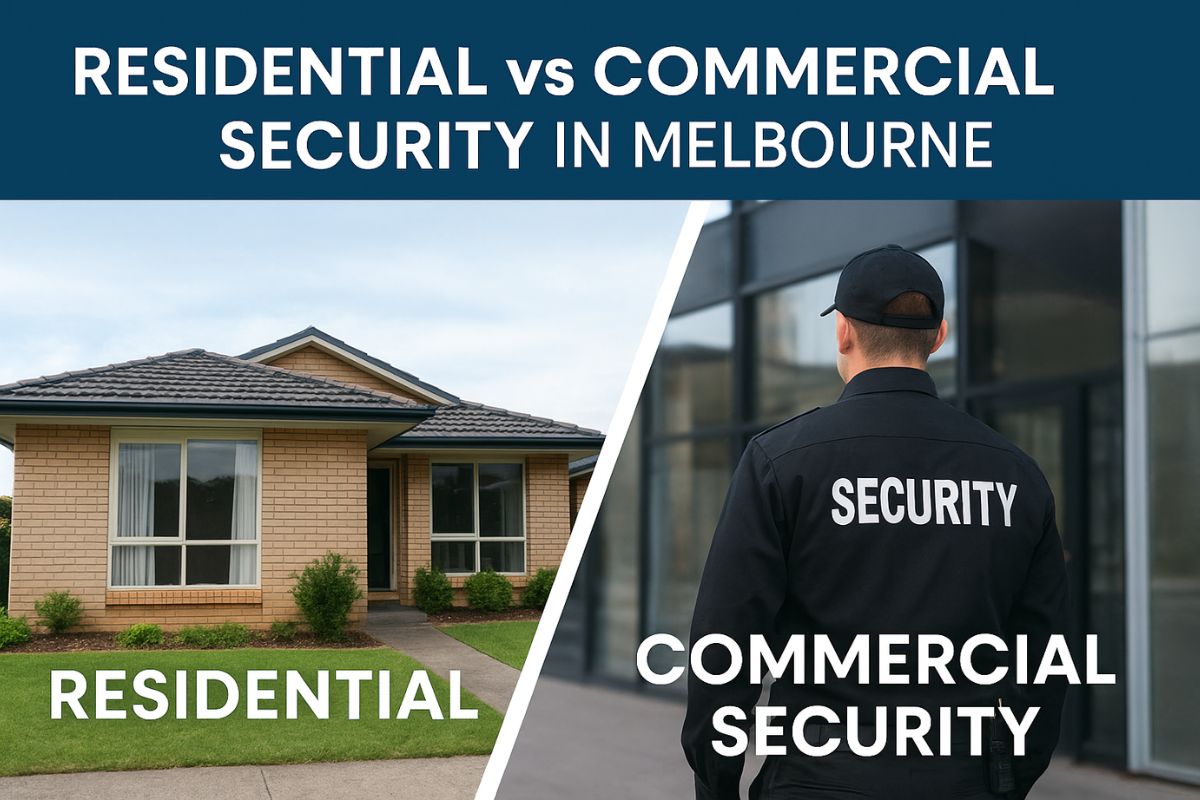Understanding Residential Security Needs
Residential properties require a unique security approach tailored to the lifestyle and safety of the occupants. Unlike commercial spaces, homes are more personal and sensitive to intrusion. A robust residential security system may include CCTV cameras, alarm systems, and controlled access points. Homeowners also benefit from hiring trained personnel for property monitoring, ensuring immediate response to threats. For those seeking professional help, engaging with a service that provides experienced security officers for hire can enhance on-site protection. Residential security not only protects valuable assets but also provides peace of mind to families, making it essential to evaluate property layout, entry points, and neighborhood safety.
Key Features of Commercial Security
Commercial properties, including offices, warehouses, and retail stores, face a higher risk of theft, vandalism, and corporate espionage. Security solutions for businesses often include access control systems, alarm monitoring, and round-the-clock surveillance. Unlike residential settings, commercial security strategies are highly structured, focusing on protecting assets, employees, and sensitive data. Employing licensed security guards ensures professional and legally compliant coverage. Businesses also benefit from regular security audits and emergency preparedness plans, which help prevent potential losses and maintain smooth operations.
Comparing Residential and Commercial Security
While both residential and commercial security aim to protect property and individuals, the strategies differ significantly. Residential security emphasizes personal safety, family protection, and neighborhood deterrence. Commercial security prioritizes asset protection, risk mitigation, and operational continuity. Evaluating these distinctions helps property owners select the right systems, personnel, and protocols. Advanced technology like surveillance cameras, smart locks, and security patrols can be adapted to both settings but must be tailored according to specific needs and risks.
The Role of Technology in Security Solutions
Modern security relies heavily on technology. For residential properties, smart home systems, CCTV cameras, and motion sensors are common tools. Commercial setups may include biometric access control, alarm integration, and centralized monitoring. Technology not only enhances security but also allows real-time monitoring and remote management. Social platforms like TikTok can be leveraged for community awareness or sharing security updates in neighborhood groups, making technology a multifaceted tool in modern security.
Benefits of Hiring Professional Security Officers
Hiring trained security personnel adds a layer of expertise and deterrence to any property. Security officers are trained to handle emergencies, monitor surveillance systems, and provide immediate response in case of incidents. For residential settings, their presence reassures families and prevents intrusions. In commercial environments, they safeguard employees, monitor assets, and enforce corporate security policies. Engaging professionals through reliable services ensures that trained personnel are always on-site and prepared for any scenario.
Residential Security Systems: What to Consider
When choosing security solutions for homes, property owners should focus on alarm systems, motion detectors, surveillance cameras, secure entry points, and emergency protocols. Integrating these systems with smart devices allows homeowners to monitor their property remotely. Neighborhood watch programs and security patrols can also enhance safety. Understanding the risks specific to your area—such as burglary trends or local crime rates—helps create a more effective residential security plan.
Commercial Security Systems: Advanced Solutions
Businesses require more comprehensive security systems due to higher stakes. Alarm monitoring, access control, video surveillance, and employee ID verification are essential. For larger commercial properties, security audits and risk assessments identify vulnerabilities. Combining technology with professional security staff ensures that operations remain uninterrupted, and assets are protected. Implementing tailored security measures can also improve client confidence and employee safety.
Tailoring Security to Your Melbourne Property
Melbourne property owners must consider location, property size, and purpose when selecting security solutions. Residential neighborhoods may benefit more from community patrols and smart home monitoring, while commercial districts require professional guards, CCTV surveillance, and emergency preparedness plans. By assessing specific needs, property owners can develop a balanced security strategy that maximizes safety and minimizes costs.
The Importance of Risk Assessment
Risk assessments are crucial for both residential and commercial properties. Identifying vulnerabilities allows property owners to address weak points proactively. Whether it’s poor lighting, unlocked access points, or high-risk areas in a commercial warehouse, a proper assessment ensures security resources are used efficiently. Professionals can provide detailed reports and recommendations for tailored security strategies.
Emergency Preparedness and Response
Effective security includes planning for emergencies. Residential plans may involve evacuation routes, alarm triggers, and emergency contacts. Commercial properties often require coordinated response plans, employee training, and communication protocols. Professional security personnel are trained to act swiftly during emergencies, minimizing damage and ensuring safety.
Cost Considerations for Security Solutions
Budget is always a factor when implementing security measures. Residential security may involve initial installation costs and ongoing monitoring fees. Commercial properties often face higher expenses due to larger areas, sophisticated technology, and staffing needs. Property owners should balance cost with effectiveness, prioritizing essential security components for maximum protection.
Legal and Compliance Factors
Commercial properties are subject to strict legal regulations regarding security, employee safety, and data protection. Hiring licensed professionals ensures compliance and reduces liability. Residential property owners must also consider local laws, privacy concerns, and neighborhood regulations when implementing security systems. Choosing a professional service guarantees adherence to legal standards.
Integrating Security with Lifestyle and Business Needs
Security solutions should complement lifestyle or business operations. Homes should remain comfortable and accessible while being secure, and commercial properties should operate efficiently without security interference. Technology, professional personnel, and smart planning create a seamless integration of safety and convenience.
Future Trends in Property Security
The security landscape continues to evolve with AI, smart devices, and automated monitoring. Residential and commercial security solutions are increasingly interconnected, allowing remote management and predictive threat detection. Staying updated with trends ensures that properties remain secure against emerging threats.
Conclusion
Choosing between residential and commercial security solutions depends on property type, risk factors, and specific needs. Melbourne property owners benefit from a tailored approach that combines technology, professional personnel, and proactive planning. Engaging services like professional security teams or exploring advanced technological tools ensures that properties remain safe and well-protected.
FAQs
1. What is the main difference between residential and commercial security?
Residential security focuses on protecting people and homes, while commercial security prioritizes asset protection and business continuity.
2. How can I hire professional security officers in Melbourne?
You can hire trained personnel through services providing experienced security officers, ensuring proper coverage and response.
3. Are smart home systems effective for residential security?
Yes, smart home devices like alarms, cameras, and sensors enhance safety and allow remote monitoring.
4. What are the benefits of hiring licensed security guards?
Licensed guards provide professional expertise, legal compliance, and effective risk management.
5. How do commercial properties assess security risks?
Risk assessments identify vulnerabilities in access points, surveillance, and emergency response plans, helping create tailored strategies.
6. Can social media platforms help in security awareness?
Yes, platforms like TikTok can be used to share neighborhood updates or emergency alerts.


